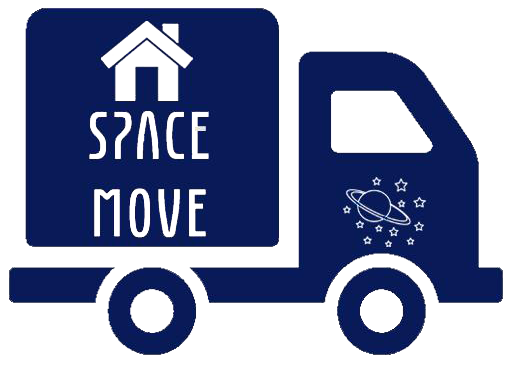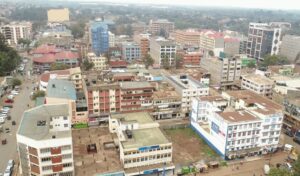How to Plan Your Move from Mombasa to Nairobi
- Early Planning: Start your planning process at least a few months before your move. This includes organizing your belongings, determining what to take, and arranging for transportation.
- Budgeting: Create a budget that covers moving expenses, transportation, and initial living costs in Nairobi.
- Choose a Moving Company: Research and hire a reputable moving company. Get quotes from multiple providers and select one that fits your needs and budget. Spacemove Kenya is one of the best companies you can choose.
- Sort and Pack: Declutter and decide what to take with you, what to donate, and what to sell. Pack your items methodically and label all boxes clearly.
- Notify Relevant Parties: Inform your current landlord, utility companies, and other necessary parties about your move. Arrange for the transfer or cancellation of services as needed.
- Documentation: Ensure all important documents (identification, employment records, medical records, school records) are organized and easily accessible.
Cost of Living: Mombasa vs. Nairobi
Mombasa
- Housing: Generally more affordable, especially near the coast.
- Utilities: Lower due to lesser demand.
- Food: Fresh seafood and local produce are reasonably priced.
- Transport: Cheaper with less traffic congestion.
Nairobi
- Housing: More expensive, especially in prime areas like Westlands, Kilimani, and Karen.
- Utilities: Higher costs due to higher demand.
- Food: Diverse options but can be pricey, especially in upscale neighborhoods.
- Transport: Higher costs and significant traffic congestion, which can increase commuting costs and time.
Overall, Nairobi tends to have a higher cost of living compared to Mombasa, so budget accordingly.
Securing Housing in Nairobi: Tips and Tricks
- Research Neighborhoods: Identify neighborhoods that fit your lifestyle and budget. Consider proximity to work, schools, and amenities.
- Use Real Estate Agents: Engage reputable real estate agents to help you navigate the housing market and find the best deals.
- Online Listings: Use online platforms like Jiji, BuyRentKenya, and Property24 to explore available housing options.
- Visit Properties: Before making a decision, visit potential properties to assess their condition and suitability.
- Negotiate Rent: Don’t hesitate to negotiate rent and terms with landlords. It can lead to better deals.
- Check Security: Ensure the area is safe and that the property has adequate security measures.
Job Market Insights for Newcomers to Nairobi
- Research: Use online job portals like BrighterMonday, LinkedIn, and company websites to understand the job market in your field.
- Networking: Leverage professional networks and attend industry events or meetups in Nairobi.
- Update Your Resume: Tailor your resume to highlight your skills and experience relevant to Nairobi’s job market.
- Prepare for Interviews: Practice common interview questions and familiarize yourself with the companies you are applying to.
- Recruitment Agencies: Consider engaging recruitment agencies to get insights into job openings and connect with potential employers.
Adjusting to Nairobi’s Climate and Environment
Nairobi has a subtropical highland climate, which can be a significant change from Mombasa’s coastal climate:
- Clothing: Wear layered clothing to adjust to Nairobi’s cooler mornings and evenings.
- Hydration: Drink plenty of water to stay hydrated, especially during the dry seasons.
- Allergies: Be aware of potential allergens like pollen and dust, and take necessary precautions if you have allergies.
- Green Spaces: Take advantage of Nairobi’s parks and green spaces, like Karura Forest and Uhuru Park, for recreation and relaxation.
Cultural Adaptation: From Coastal Mombasa to Urban Nairobi
- Pace of Life: Nairobi’s fast-paced lifestyle is a significant change from the more relaxed atmosphere of Mombasa. Be prepared for a busier and more hectic environment.
- Diversity: Nairobi is more cosmopolitan, with a diverse population from different parts of Kenya and the world. Embrace the cultural diversity and explore new cuisines, languages, and traditions.
- Social Scene: Nairobi offers a wider range of social and entertainment options, including theaters, restaurants, shopping malls, and nightlife. Engage in these activities to meet new people and enjoy the city’s vibrant culture.
- Language: While Swahili and English are widely spoken in both cities, Nairobi’s cosmopolitan nature might expose you to more international languages and cultures.
- Stay Informed: Keep up with local news and events to stay informed about what’s happening in the city.
By planning carefully, understanding the cost of living, securing housing, exploring job opportunities, adapting to the climate, and embracing cultural diversity, your move from Mombasa to Nairobi can be a successful and rewarding transition.




